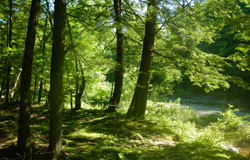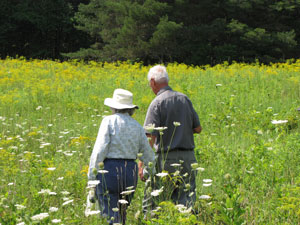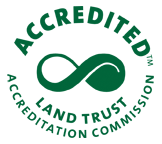As of January 1, 2024, the Rensselaer Land Trust has merged with the Rensselaer Plateau Alliance. For all questions regarding donations, events, land, or other matters, please visit www.rensselaerplateau.org or call 518-712-9211. For questions about the merger, use extension 101 to speak with Jim Bonesteel. You can expect a new name and logo for our merged organization by Spring / Summer 2024 and a new website by the end of the year!
Explore
Explore
 The Rensselaer Land Trust has conserved over 1,200 acres in Rensselaer County acres in Rensselaer County. These include eight public preserves which you can visit year round. There are also 15 easements and preserves which are on private land or have limited access due to fragility of the environment. We provide outings to many of these areas on a regular basis. See our outings schedule for details.
The Rensselaer Land Trust has conserved over 1,200 acres in Rensselaer County acres in Rensselaer County. These include eight public preserves which you can visit year round. There are also 15 easements and preserves which are on private land or have limited access due to fragility of the environment. We provide outings to many of these areas on a regular basis. See our outings schedule for details.
We can provide great new outdoor recreation opportunities at our public preserves. Our other conserved acres provide very important benefits: protecting rare plants and environments such as fens, providing wildlife habitat, protecting streams and water quality for citizens of Rensselaer County. Conserved lands help Rensselaer County to develop resilience against climate changes and storm events.
Explore our Preserves
 Rensselaer County has so many places to explore and learn about our beautiful natural wonders.
Rensselaer County has so many places to explore and learn about our beautiful natural wonders.
Learn more about preserves, trails, waterfalls, and our partners:
Rensselaer Land Trust's Preserves
Waterfalls of Rensselaer County
Subcategories
Rensselaer Land Trust owns and operates five public nature preserves with trails open to the public for passive recreation, such as wildlife observation or hiking. Additionally four of our five public nature preserves offer fishing and one has a boat launch. We welcome you to bring your leashed dogs and go for a walk in the woods, snowshoe and cross country ski, bird watch, or bring your fishing poles for a quiet day on the water. All of our preserves are open from dawn to dusk. Please click on our Preserve links below to find out more about our preserves, including directions, maps and general information. Several of our preserves are not open to the public daily because access to the preserve is over private land and trails do not exist. If you are interested in visiting one of these, please contact the office RLT@rensselaerplateaualliance or 518-712-9211 and an escort can be arranged for you.
Note, the following preserves are not open to the public full time; they are only open by arrangement: Bear's Den Preserve, Mud Lake Preserve (Shuba Preserve), and Pineswamp Preserve.
 Rensselaer Land Trust holds a conservation easement on 15 private lands. Land under a conservation easement is owned by a private landowner. A conservation easement does not mean that the property is open to the public. Rensselaer Land Trust holds some of the property rights, including the right to restrict development of the land. Most landowners elect to retain control over access to the land. Of our 15 conservation easement lands, four allow for public access. Please click on the Conservation Easement lands links below to find out more about our conservation easement properties.
Rensselaer Land Trust holds a conservation easement on 15 private lands. Land under a conservation easement is owned by a private landowner. A conservation easement does not mean that the property is open to the public. Rensselaer Land Trust holds some of the property rights, including the right to restrict development of the land. Most landowners elect to retain control over access to the land. Of our 15 conservation easement lands, four allow for public access. Please click on the Conservation Easement lands links below to find out more about our conservation easement properties.
 With the assistance of area naturalists Steve Young and Russell Dunn, the Rensselaer Land Trust identified 56 waterfalls in Rensselaer County. To find out more about the waterfalls, including locations and descriptions, see Russell Dunn’s Adirondack Waterfall Guide: New York's Cool Cascades.The five waterfalls featured here were those which were visited on the 2000 RensselaerTaconic Land Conservancy (RTLC) waterfalls outing.
With the assistance of area naturalists Steve Young and Russell Dunn, the Rensselaer Land Trust identified 56 waterfalls in Rensselaer County. To find out more about the waterfalls, including locations and descriptions, see Russell Dunn’s Adirondack Waterfall Guide: New York's Cool Cascades.The five waterfalls featured here were those which were visited on the 2000 RensselaerTaconic Land Conservancy (RTLC) waterfalls outing.
Explore natural areas and the rich history of Rensselaer County through these publications, which were a labor of love by our directors over the past 25 years. Some of the areas described in the portfolios are open to the public. This provides a rich opportunity to read about the history of these areas in depth and then visit the sites for a look at local history today.



